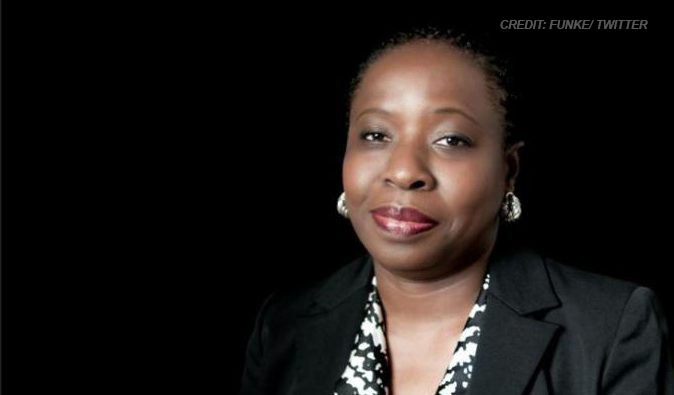Funke: Bridging The Digital Divide
How Funke Opeke Built An Under Sea Fiber Optic Cable For West Africa
Africa’s emerging African business leaders have the task of solving big problems. One of those challenges is closing the digital divide between Africa and the world. And Nigeria’s Funke Opeke is taking on that challenge. Funke is the Founder and CEO of Main One-West Africa’s first private company to develop an undersea fiber optic cable. Main One has built a 7,000 kilometer submarine fiber optic cable that connects West Africa to Europe in order to unlock fast broadband to the region. Over the past five years, Main One has invested over $ 300 million in broadband infrastructure, starting with an initial investment of $240 million that Funke herself raised from African investors to start the project. Launched in 2010, the cable which has a capacity of 1.92 terabits a second, reaches out to the Canary Islands, Ivory Coast, Morocco, and Senegal. The cable lands in Africa via Nigeria and Ghana through Portugal. From the time of its launch Main one has continued to build infrastructure targeted at West African institutions and companies with needs for data center facilities, terrestrial fibre networks, and points of presence facilities that need internet services.

Main One plans to invest some $600 million in additional infrastructure over the next 10 years. In addition to laying down the submarine cable, Main One also launched a tier one data center in Lagos. Both initiatives have played an essential role in strengthening broadband penetration in West Africa. According to Main One, its initiatives have contributed to a 1000% growth in broadband penetration and a reduction in wholesale prices by 82%. The company’s journey has not been without challenges however. For instance, like many companies in Nigeria, Main One has had to contend with the lack of reliable power which is a substantial impediment for a company such as Main One that needs to run on a 24 hour operating schedule. The company has had to invest in its own power generation assets to ensure continued operations. Other challenges include West Africa’s currency fluctuations which complicate the company’s currency risk exposures given that Main One’s financing is provided in international currencies such as the US dollar.

Going forward, Main One is seeking to move from being a submarine cable operator to a business to business telecoms company that provides connectivity to businesses that require internet and connectivity infrastructure . In the next 10 years, Main One plans to build data centers, terrestrial fiber networks, and computing infrastructure to support cloud services. Main One’s services are providing critical backbone support for other technology intensive sectors such as payments systems, financial services, and e-commerce-all of which have seen strong growth in Nigeria and West Africa. The second phase of the project will include connecting Nigeria to South Africa and connecting the Main One cable to Seacom, East Africa’s undersea fiber optic cable.
Funke studied electrical engineering at Obafemi Awolowo University in Nigeria prior to moving to the US where she obtained a Master’s degree from Columbia University. Funke worked in the telecoms sector in the US rising to the post of Executive Director of the Wholesale division of Verizon Communications. She returned to Nigeria in 2005 and took a stint at MTN as the company’s Chief Technical Officer. In 2007, she launched Main Street Technologies which drove the development of West Africa’s first private submarine cable system-the Main Once Cable. Main One is the re-branded name of the original Main One Cable Company. Funke is upbeat about the prospects of Nigeria’s broadband space. Funke also believes that Africa needs to deliver affordable and high speed broad band if it is to become competitive. Funke clearly has a lot on her plate.

